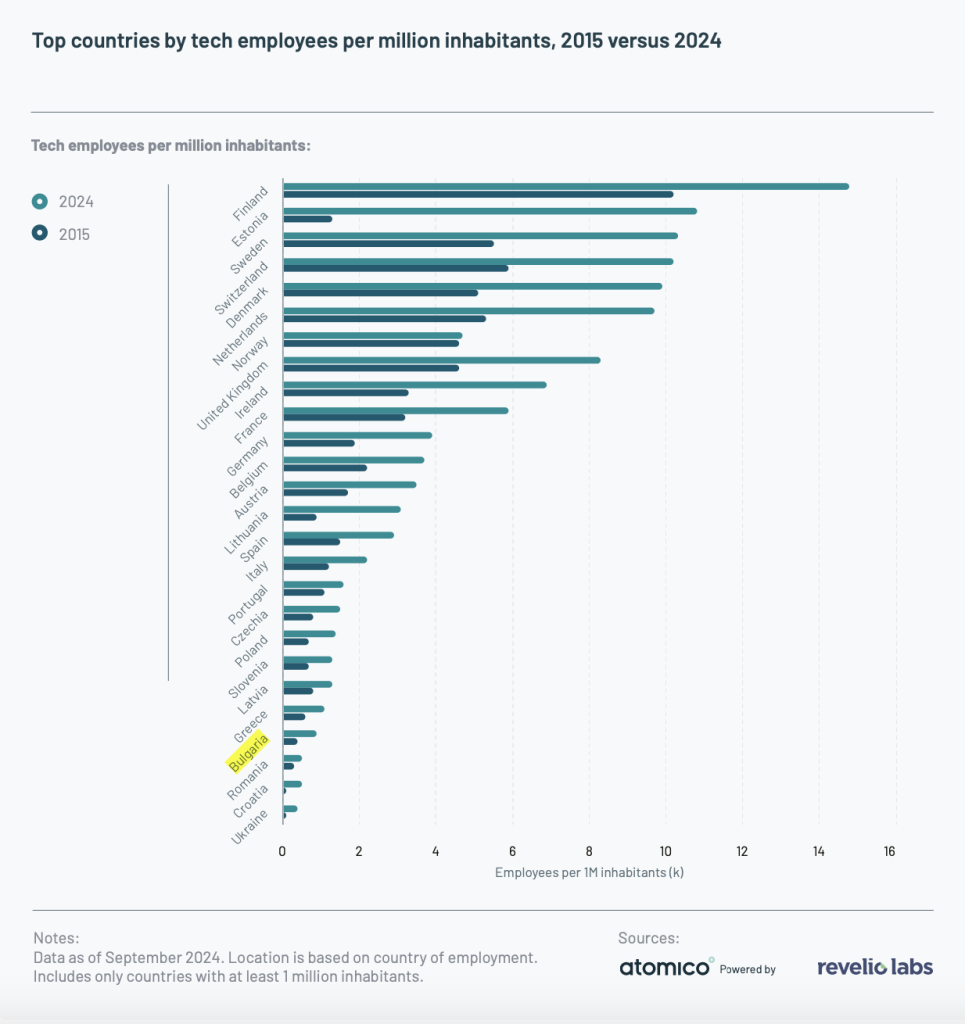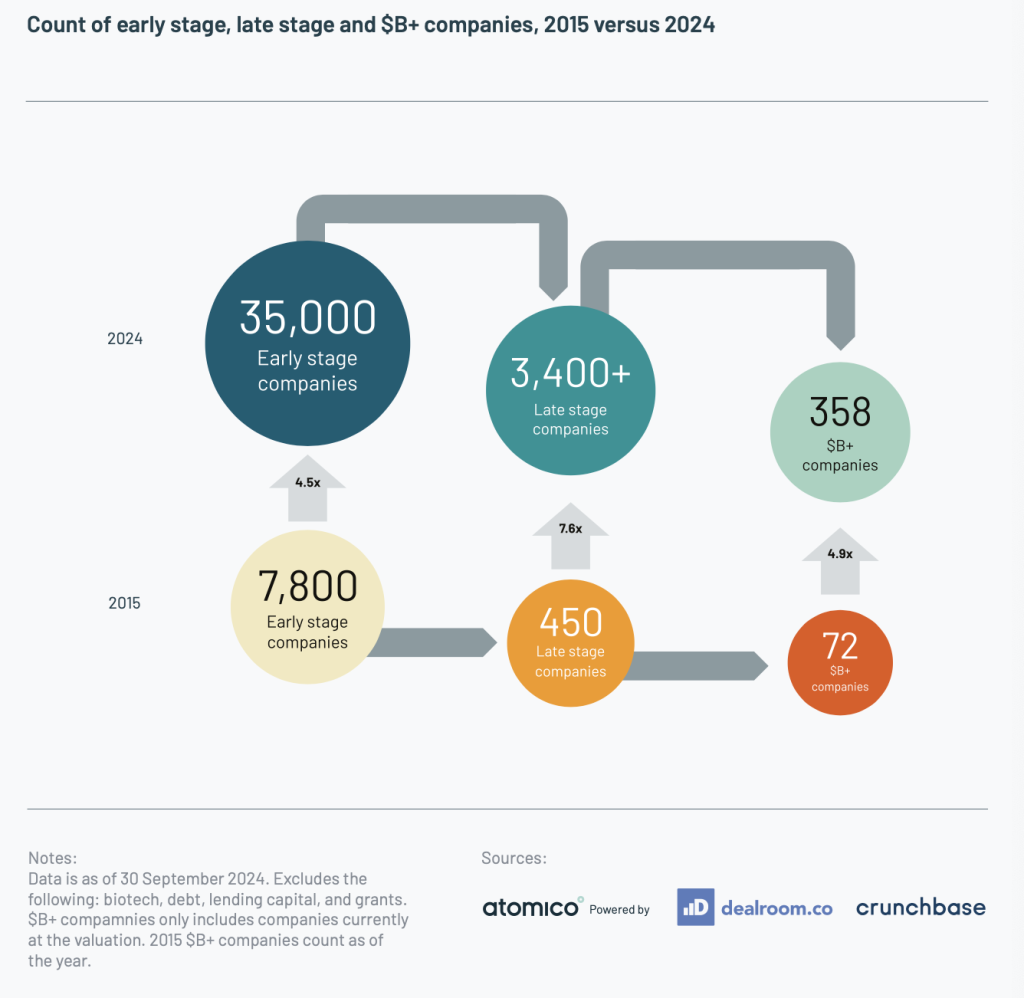3.5 million of Europe’s population are employed in the tech industry, according to an annual report by London-based venture capital firm Atomico*.
The 10th anniversary edition of the State of European Tech notes that 2.9 million of these professionals have started IT jobs in the last 10 years, putting the Old Continent on pace to catch up with the US. According to the report, there are now as many people employed in the tech sector in Europe as there were overseas in 2020.
Despite this growth, however, there have been no major changes in the male-female ratio. 34% of employees in the sector are female, down one percent from 2015. This compares to 36% in the US.
If we were to look at the countries with the most tech employees per 1 million people, Bulgaria comes in 23rd out of 26 European countries examined, with Romania, Croatia and Ukraine coming in behind. According to the data available to H512.com, there are over 66 thousand IT professionals in Bulgaria.

Finland tops the ranking, which according to the survey is partly due to the fact that the country is home to the largest employer in the sector – Nokia. In second place is Estonia, where between 2015 and 2024 the workforce jumped 10-fold to 11 thousand people per million population.
On the hunt for talent
Among entrepreneurs, hesitation is emerging about how easy it is to hire new staff. In 2021, nearly half of company founders said that hiring people was more difficult, while this year 34% of them are of this opinion. “Respondents were evenly split on whether it was easier, harder or no change,” the analysts noted in the report.
It adds that big companies like Amazon, Google, IBM and Microsoft are dictating trends in the tech talent market.
AI is a growing factor
H512.COM’s Job Board has dozens of job postings in artificial intelligence (AI) and machine learning every day . Over the last decade, AI-related jobs have increased six-fold in Europe . Specifically, in 2024, the most positions related to this technology were open in the UK – 60 thousand, followed by the Netherlands and Germany with 50 thousand jobs each.
Alongside this, funding is also growing, with the UK, Germany and France in the top 10 countries in the world with the most investment in AI.
Funding for tech startups is stabilising, but..
Over the past ten years, European companies have raised $426 billion in funding, up tenfold from a decade earlier.
By the end of 2024, funding for European tech startups is expected to reach $45 billion, or three times the amount in 2015, when the survey was first conducted, according to the report.
However, this figure is $2 billion less than in 2023 and a far cry from the peak of over $100 billion in invested capital reported in 2021. Back then, 98 new unicorn companies (startups that reached a valuation of more than $1 billion) were registered in Europe. At the same time, there are many times more funding rounds today than in 2015.
Explore more
How many tech companies are there in Europe?
The answer is 35 thousand if we consider only those that fall into the early stage category (early stage), followed by late stage companies, which are 3,400. Those with a valuation of more than 1 billion dollars are 358. By comparison, in 2015 they were several times fewer, as can be seen in the chart.

Tech hubs on the continent
In their report, Atomico point out that nearly ten years ago, London was the only European tech hub in the top 10 when it came to funding early-stage startups. Today, two more cities – Berlin and Paris– make the list. Munich and Stockholm are also mentioned in key positions.

On the other hand, smaller countries like Estonia are also making progress. Atomico recalls that the country actively implements policies that support startups and their development.
In addition, Atomico asked survey respondents what needs to change in the European tech sector over the next decade to unleash Europe’s full potential. Respondents cited regulation, bureaucracy and politics as the main barriers to this goal.
*The survey, commissioned by Atomico, involved 3,500 respondents connected to the European tech industry. It was conducted between September and October 2024 and processed data from entrepreneurs and investors in 41 European countries.


 Publish date: 22 November, 2024
Publish date: 22 November, 2024





